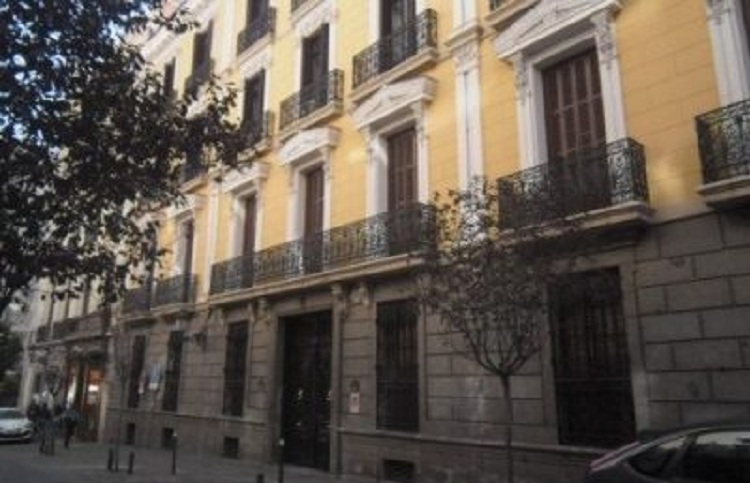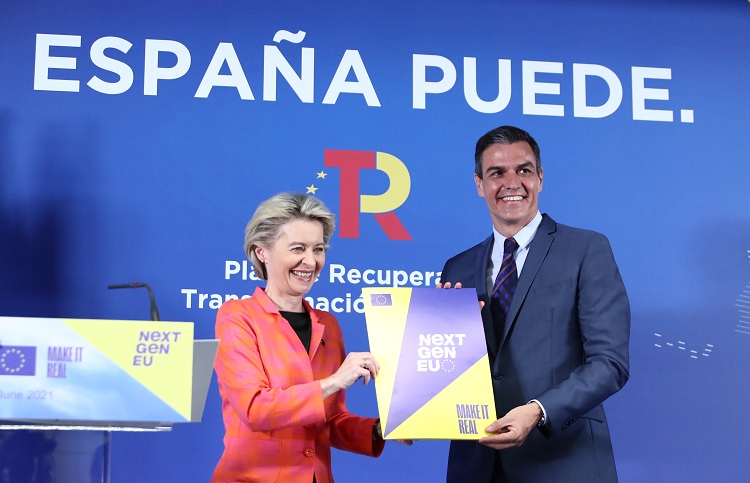Eduardo González
In July 1936, when the military uprising against the Republic took place, a large part of the foreign embassies accredited in Madrid were closed due to the summer holidays and most of the diplomats refrained from going back. One of the few exceptions was Chile, which became the diplomatic legation that took in the highest number of refugees during the war, numbering approximately 4,000.
In 1931, barely three years after diplomatic relations were formalized between both countries, Chile was one of the first countries in the world to recognise the new Spanish Republic. When the military uprising broke out, the Embassy was led by the former radical-socialist senator Núñez Morgado (1885-1951), ambassador since 1934, and Carlos Morla Lynch (1885-1969), a close friend of the poet Federico García Lorca and the one in charge of business between 1928 and 1938, when he accessed the position of ambassador after his predecessor was forced to resign due to pressure of the Spanish Government.
Immediately after the start of the conflict, according to personal testimonies of Núñez Morgado collected by the Chilean researcher Elena Romero Pérez, the Chilean legation received “the most urgent supplications of asylum and the Embassy was soon invaded by an always increasing number of refugees which now amount to almost a thousand people, distributed into the main mansion of the representation (26 Prado Street), where there are about 600 refugees, and the buildings annexed to this: the Consulate, Salamanca Square; the Chilean Shelter, 13 Santa Engracia Street; and the Dean’s Office, 29 Castellana.
“Since I saw the situation turn more and more serious, two or three hundred people murdered every day, it was not only not possible for me to get rid of those I had already received, but also impossible to turn a deaf ear to those in such circumstances calling at my door”, Aurelio Núñez Morgado stated in 1936.
Most of the refugees were right-wing, although there were also many people who had fled from the war itself more than from any kind of political persecution. The granting of asylum caused the ambassador important problems with the republican Government. In the course of time, the Executive ended up accepting “the fact”, not the “right”, of asylum for the refugees. In 1938, when there was no quick end in sight for the war, the case of the Spanish refugees at Chile’s Embassy was referred to the Society of the Nations, arguing that they had taken in refugees of both sides, as it would happen after the victory of the pro-Franco forces.
According to the poet Pablo Neruda, Chile’s Embassy took in approximately 4,000 people during the war, among them the writers Joaquín Calvo Sotelo, Víctor de la Serna and Rafael Sánchez Mazas. The next Embassy in number of refugees was the one of Argentina, with almost 1,500. In 1938, the Embassy had been able to evacuate more than 1,200 people to Chile and to face the problem it even exchanged some of the refugees for prisoners of the pro-Franco faction, among them more than a thousand Basque prisoners under the protection of the Chilean legation by the autonomous Government of the Basque Country.
In his written testimonies, Núñez Morgado tells the tensions lived because of fear to an invasion of the Embassy by the left-wing militias (as it happened, in fact, in the Turkish Embassy in January 1938) and the harsh life conditions in the building: “The thermometer was a few degrees below zero for fifteen days. The water was frozen in the pipes. There was barely food to eat. The elderly succumbed and many children died of cold”.
Another problem pointed out by the ambassador is the persistence of a “class struggle” inside the building, despite the fact that almost all the refugees were right-wing. Núñez Morgado remembers that many refugees had a title of nobility, which they used to try to get advantages: “Disputes, battles of hysterical women, challenges between irascible dukes and marquis, intrigues all of kinds, reached such a point that we had to establish some discipline”.
After the war, the Embassy continued offering asylum to republicans who had fled from pro-Franco repression, among them the daughters of Francisco Largo Caballero. It even managed the exile of Manuel Azaña and Indalecio Prieto’s relatives. An emblematic case was that of the poet Miguel Hernández, who refused to accept refugee at the Embassy because, according to statements made by the new Ambassador Morla Lynch, he did not want to find shelter “in any place” for considering it “a last minute desertion”.
[hr style=”single”]








